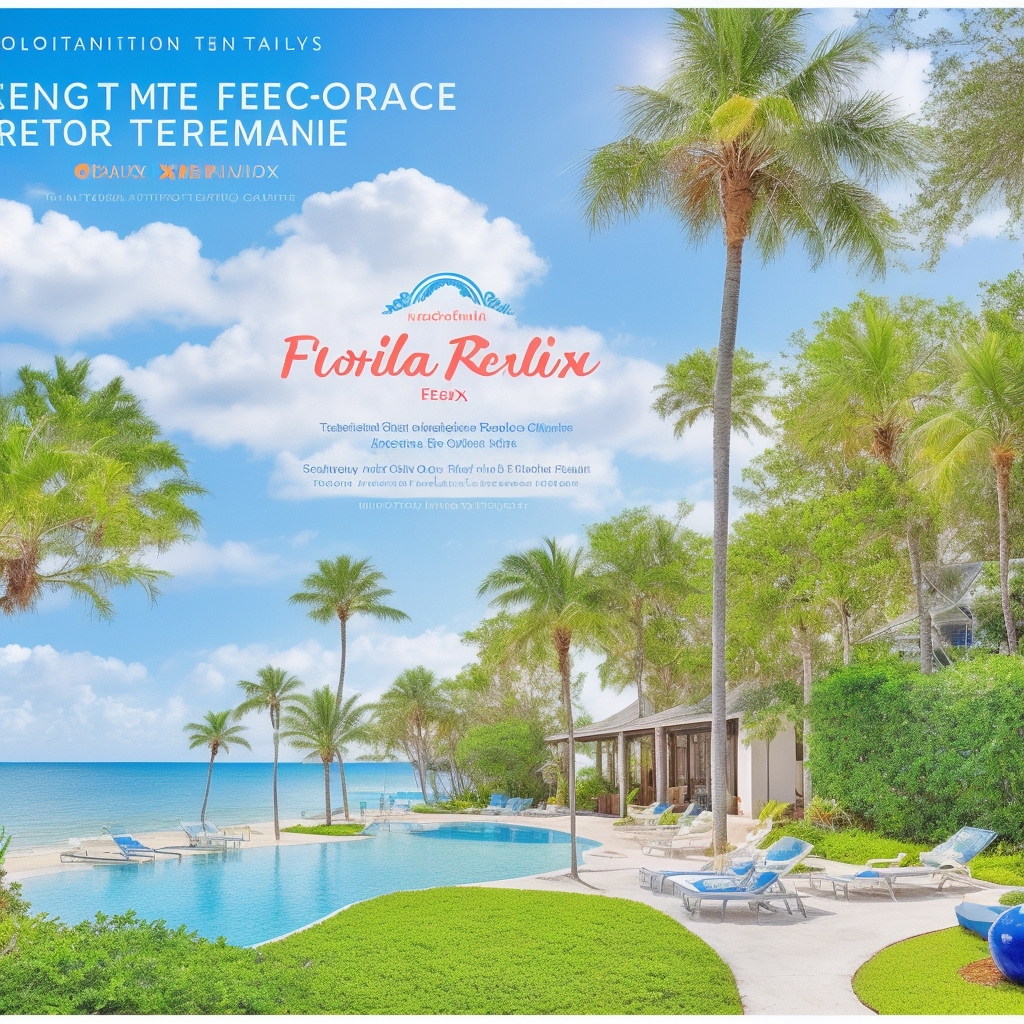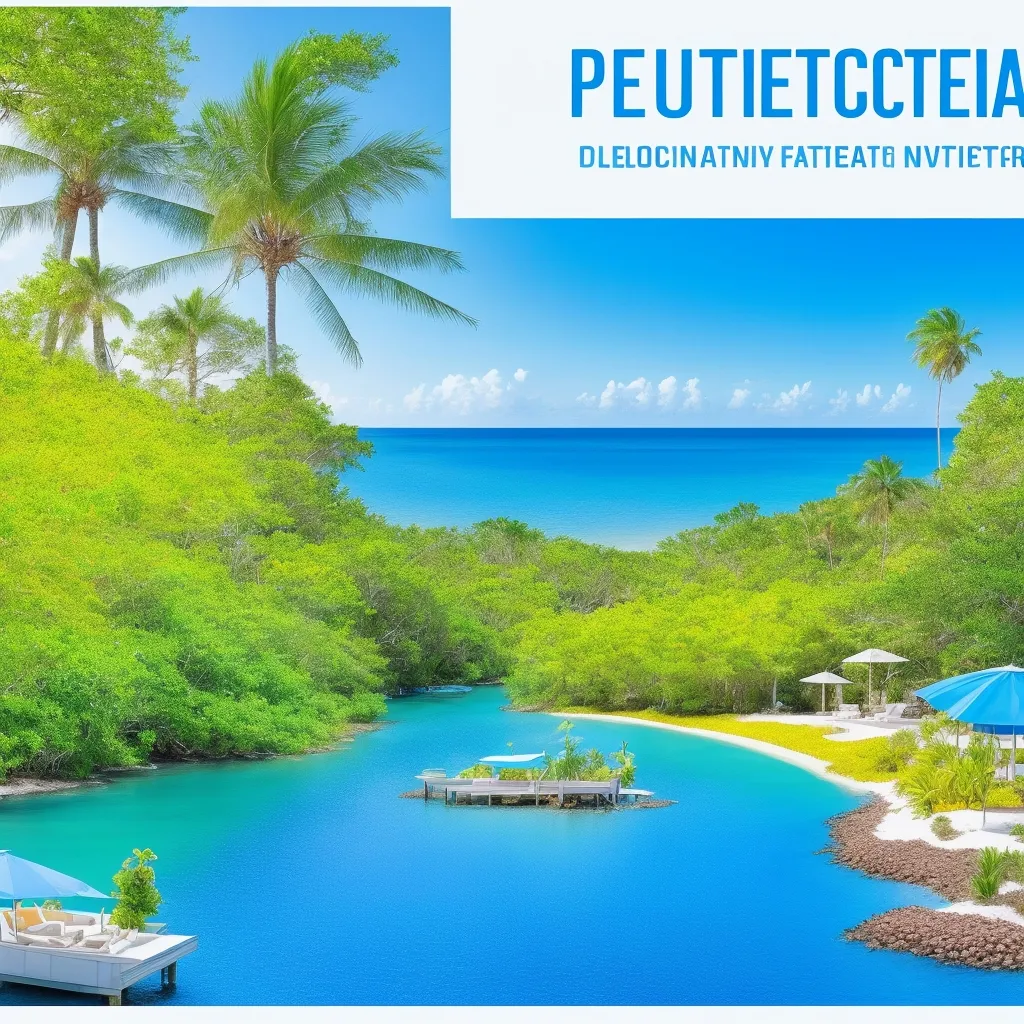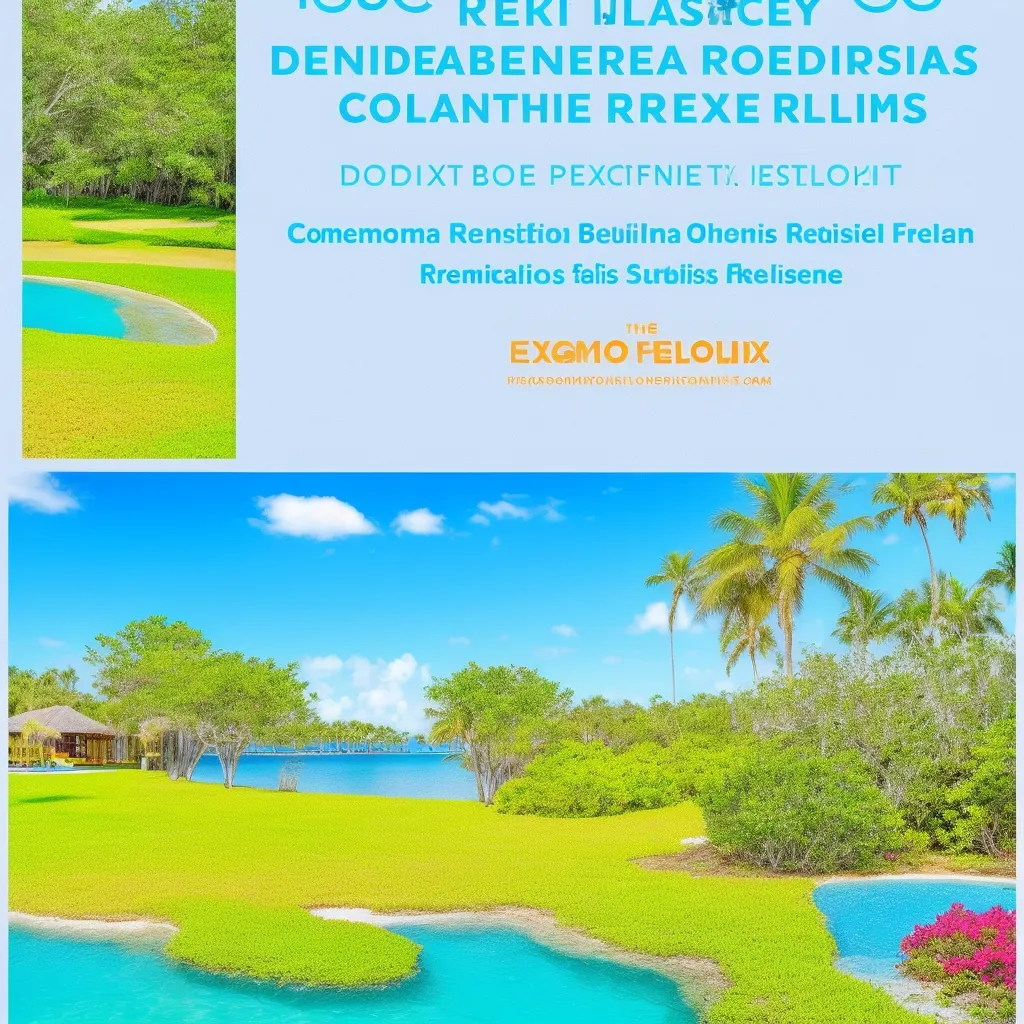When Should You Plan Your Florida Detox Retreat for Optimal Weather and Experience?
Three distinct signals have really caught my attention over the past six months regarding the ideal time to plan a Florida detox retreat for optimal weather and overall experience. What’s interesting is that these signals point toward a significant shift that most professionals aren’t yet fully preparing for. Understanding these evolving trends is crucial, I believe, for truly maximizing the benefits of a wellness journey in the Sunshine State.
The complexity of timing a Florida detox retreat has evolved far beyond simply avoiding hurricane season or peak tourist months. Today’s wellness travelers are increasingly sophisticated in their approach, seeking not just relaxation but genuine transformation through carefully orchestrated experiences that align with both natural rhythms and personal wellness goals.
Current State: Where We Are Today
Florida’s appeal as a premier detox retreat destination is undeniably skyrocketing. This surge is largely driven by its consistently warm climate, serene landscapes, and, of course, the ever-increasing demand for wellness tourism. For context, the global wellness tourism market was valued at an impressive USD 995.3 billion in 2024 and is projected to grow at a compound annual growth rate (CAGR) of over 13.2% from 2025 to 2034. North America, specifically, held a substantial market share, with the U.S. wellness tourism market alone valued at USD 229.2 billion in 2024.
The state’s unique combination of sun-drenched beaches, world-class spas, and dedicated wellness centers makes it an absolutely ideal location for detox retreats. From the pristine coastlines of the Gulf Coast to the tropical ambiance of the Keys, Florida offers diverse microclimates that can enhance different aspects of the detox experience. The abundance of natural springs, such as those found in Crystal Springs and Rainbow Springs, provides additional therapeutic benefits through mineral-rich waters that have been used for healing purposes for centuries.
Here’s the thing though: timing is becoming even more critical to optimizing that experience. The traditional approach of simply booking during “good weather” months is proving insufficient as retreat-goers become more discerning about factors like humidity levels, UV intensity, air quality, and even lunar cycles that can influence sleep patterns and emotional well-being during intensive wellness programs.
Emerging Patterns: What Signals We’re Seeing
-
Seasonal Shifts: I’ve personally noticed a subtle but definite shift in the optimal timing for these retreats. While the traditional winter months (December to February) were once overwhelmingly popular, there’s a growing trend towards spring and fall retreats. This shift is primarily driven by the allure of milder weather and, quite frankly, fewer tourists, which can make for a more peaceful and personalized experience. The shoulder seasons offer what wellness experts are calling the “Goldilocks zone” – not too hot, not too crowded, but just right for deep introspective work.
-
Climate Adaptation: Climate change is undeniably affecting weather patterns, and Florida is certainly no stranger to its impacts. Data from the National Oceanic and Atmospheric Administration (NOAA) indicates increasing temperatures and more unpredictable weather during what were once considered traditional peak months. For instance, 2024 was Florida’s 5th-warmest year on record since 1895, with a statewide annual average temperature of 72.9°F – 2.8°F above the 20th-century average. Many professionals are now starting to adjust their planning accordingly, and frankly, they have to. This climate variability has led to the emergence of “micro-season” planning, where retreat organizers monitor weather patterns weeks in advance and adjust programming to take advantage of optimal conditions.
-
Customized Experiences: There’s a fascinating and robust trend towards personalized detox experiences. Retreats are increasingly leveraging data analytics to tailor programs to individual needs, making the timing of a retreat much more flexible based on specific personal wellness goals. This isn’t just about a generic package anymore; it’s about your journey. Advanced retreat centers are now using biometric data, sleep pattern analysis, and even genetic testing to determine the most beneficial timing for each participant’s detox process. Some facilities are incorporating chronobiology – the study of biological rhythms – to align detox protocols with individual circadian rhythms for maximum effectiveness.
-
Virtual Components: As digital detoxes become increasingly popular – and let’s be honest, much-needed – many retreats are smartly incorporating virtual components to enhance the overall experience. This allows participants to prepare effectively or decompress gradually before and after their physical stay, creating a more holistic and lasting impact. Pre-retreat virtual consultations help establish baseline wellness metrics, while post-retreat digital support groups maintain the momentum of transformation long after returning home.
-
Eco-Conscious Timing: A growing segment of wellness travelers are timing their retreats to coincide with Florida’s natural cycles, such as sea turtle nesting seasons, bird migration patterns, or the blooming of native wildflowers. This “eco-synchronous” approach adds layers of meaning to the detox experience, connecting participants more deeply with the natural environment that supports their healing journey.
Driving Forces: Why These Trends Are Happening
These trends aren’t just random occurrences; they’re driven by several compelling factors that reflect broader shifts in how we approach wellness and self-care:
-
Climate Variability: As climate change continues to alter weather patterns, retreat planners are wisely opting for months with more predictable and comfortable weather. Florida has experienced above-average temperatures and increased precipitation in 2024, with some areas seeing record-wet years. The unpredictability is a frustrating element for planners. This has led to the development of more flexible booking policies and the creation of indoor-outdoor hybrid spaces that can accommodate sudden weather changes without disrupting the retreat experience.
-
Consumer Awareness: Increased awareness of the profound importance of holistic wellness and mental health has led to a significant demand for more personalized and flexible detox options. People aren’t just seeking a quick fix; they’re looking for genuine, tailored solutions. Modern wellness consumers are educated about the interconnections between environment, timing, and healing outcomes. They understand that a detox retreat in Florida’s humid summer might require different hydration protocols than one during the dry winter months.
-
Technology Integration: The seamless integration of technology in wellness programs allows for more personalized and data-driven experiences, from AI-powered recommendations to wearable device integration. This isn’t just about gadgets; it’s about smarter wellness. Advanced retreat centers now use environmental sensors to monitor air quality, humidity, and even electromagnetic fields to optimize the healing environment in real-time.
-
Scientific Understanding: Growing research into the relationship between environmental factors and detoxification processes has informed more sophisticated timing strategies. Studies on vitamin D synthesis, negative ion exposure from ocean environments, and the impact of natural light cycles on melatonin production are all influencing how and when retreats are scheduled.
Future Implications: What This Means for Different Stakeholders
For savvy retreat organizers, adapting to these trends isn’t just a good idea; it’s absolutely essential for remaining competitive. Offering retreats during off-peak seasons can potentially reduce operational costs and, crucially, significantly enhance customer satisfaction due to less crowded environments. The financial benefits extend beyond reduced accommodation costs – off-peak scheduling often means better availability of premium wellness practitioners, more personalized attention from staff, and access to exclusive experiences that might be unavailable during busy periods.
Meanwhile, participants stand to benefit immensely from less crowded venues and, quite wonderfully, more personalized attention. It’s a win-win scenario when executed thoughtfully. The intimate atmosphere of smaller groups during shoulder seasons often leads to deeper connections between participants, creating lasting support networks that extend well beyond the retreat experience.
Healthcare providers and wellness practitioners are also recognizing the importance of environmental timing in treatment outcomes. Some are beginning to prescribe specific seasonal timing for detox programs based on individual health profiles and therapeutic goals. This medical approach to retreat timing represents a significant evolution from the traditional vacation-style wellness experience.
Frequently Asked Questions
Question 1: What is the best month to plan a detox retreat in Florida?
The optimal months are definitively shifting towards spring (March to May) and fall (September to November). This is largely due to milder weather conditions and a noticeable decrease in tourist traffic, which collectively offer a more serene and impactful retreat experience. March and April are particularly favorable as they offer comfortable temperatures averaging 70-80°F, lower humidity levels, and the natural renewal energy of spring that can enhance the psychological aspects of detoxification. October and November provide similar benefits with the added advantage of post-hurricane season stability and the calming influence of autumn’s natural slowing down.
Question 2: How is climate change impacting retreat scheduling?
Climate change is leading to increasingly unpredictable weather patterns, including hotter summers and more active hurricane seasons, during traditional peak months. As a result, astute retreat planners are adjusting their schedules to proactively avoid extreme temperatures and the potential for disruptive storms. Many facilities are now investing in climate-controlled environments and developing contingency programs that can adapt to sudden weather changes. The increased frequency of extreme weather events has also led to more flexible cancellation and rescheduling policies, protecting both organizers and participants from weather-related disruptions.
Question 3: Are digital detox components becoming standard in retreats?
Absolutely. Many forward-thinking retreats are now incorporating digital detox elements to enhance the holistic experience. This encourages participants to truly disconnect from their devices and immerse themselves fully in their well-being journey. However, the approach is becoming more nuanced – rather than complete digital elimination, many programs now focus on mindful technology use, teaching participants how to maintain healthy digital boundaries long after the retreat ends. Some facilities offer “digital sunset” periods where technology use is restricted during certain hours while still allowing access for emergency communications.
Question 4: How are retreats personalizing experiences for attendees?
Retreats are increasingly utilizing data analytics and invaluable client feedback to offer highly tailored programs. This ensures that the experience aligns perfectly with individual wellness goals, ultimately making the retreat far more effective and fulfilling. Advanced personalization now includes pre-retreat health assessments, genetic testing for optimal nutrition planning, sleep pattern analysis for scheduling activities, and even personality profiling to match participants with compatible roommates and group activities. Some facilities use continuous monitoring devices to track stress levels, sleep quality, and physical activity, adjusting daily programs in real-time based on individual responses.
Question 5: Can off-peak scheduling benefit both organizers and participants?
Yes, without a doubt! Scheduling retreats in off-peak seasons can significantly lower costs for organizers due to reduced demand and, perhaps even more importantly, provide participants with a more intimate, less crowded, and ultimately more focused experience. Off-peak scheduling often allows for smaller group sizes, which research shows can improve outcomes in therapeutic settings. Participants report feeling more comfortable sharing personal experiences and challenges in smaller, more intimate groups. Additionally, off-peak timing often coincides with periods when local wellness practitioners and specialists have more availability, allowing for enhanced programming and individual attention.
Strategic Recommendations: How to Prepare and Adapt
For anyone contemplating a detox retreat, or for organizers looking to optimize their offerings, consider these strategic moves that reflect the evolving landscape of wellness tourism:
-
Plan for Spring or Fall: Seriously consider taking advantage of these shoulder seasons. You’ll benefit from milder weather and significantly reduced tourist traffic, which can make all the difference. Spring retreats can capitalize on the natural detoxification energy of the season, while fall programs can focus on preparation and grounding before winter months. These seasons also offer unique opportunities for outdoor activities that might be uncomfortable during peak summer heat or winter cold snaps.
-
Invest in Technology: Embrace smart solutions. Incorporate virtual components to extend and enhance the detox experience, and leverage data to personalize offerings truly. Consider implementing wearable technology that can track biometric data throughout the retreat, providing valuable insights into the effectiveness of different treatments and activities. Virtual reality meditation sessions, biofeedback training, and app-based follow-up programs can significantly extend the benefits of the retreat experience.
-
Monitor Weather Patterns: Stay diligently updated with NOAA reports. This isn’t just about curiosity; it’s about predicting and planning for weather changes that could impact your experience. Develop relationships with local meteorologists and consider subscribing to specialized weather services that provide detailed forecasts for your specific region. Create flexible programming that can adapt to weather changes, with both indoor and outdoor options for all activities.
-
Focus on Personalization: Use available data and listen to feedback to tailor programs to individual needs and preferences. A one-size-fits-all approach just doesn’t cut it anymore in the wellness space. Implement comprehensive intake processes that assess not just physical health but also emotional state, stress levels, sleep patterns, and personal goals. Consider offering multiple program tracks within the same retreat to accommodate different experience levels and objectives.
-
Develop Climate Resilience: Create programs and facilities that can adapt to changing environmental conditions. This might include investing in air purification systems, developing indoor alternatives for outdoor activities, and creating flexible scheduling that can accommodate sudden weather changes without compromising the retreat experience.
Timeline Perspective: What to Watch in the Next 6-18 Months
As we look ahead, keep a keen eye on developments in climate data and, crucially, technological advancements within the wellness sector. The next 6-18 months will likely see even further integration of AI in personalized retreat planning and an increased emphasis on sustainability initiatives to appeal to the growing segment of environmentally-conscious consumers.
Emerging trends to monitor include the development of predictive analytics for optimal retreat timing based on individual biorhythms, the integration of environmental DNA testing to identify the most beneficial natural environments for specific health conditions, and the rise of “climate-adaptive” retreat programming that can shift focus and activities based on real-time environmental conditions.
The wellness industry is also moving toward greater scientific validation of retreat outcomes, with more facilities partnering with research institutions to study the effectiveness of different timing strategies and environmental factors on detoxification and wellness outcomes. This evidence-based approach will likely lead to more precise recommendations for optimal retreat timing based on individual health profiles and goals.
For more insights on planning your detox retreat, you might find useful information in our 2025 Guide: Best Time for Detox Retreats in Florida and 2025 Trends in Detox & Wellness: Expert Insights.
By staying informed and remaining adaptable, both retreat planners and participants can truly make the most of Florida’s unique offerings, ensuring a deeply rejuvenating and transformative experience. The key lies in understanding that optimal timing is no longer just about avoiding bad weather or crowds – it’s about creating the perfect confluence of environmental, personal, and programmatic factors that support profound healing and transformation.
The future of Florida detox retreats lies in this sophisticated understanding of timing as a therapeutic tool, where every aspect of when and how a retreat is scheduled contributes to its healing potential. As we continue to learn more about the intricate relationships between environment, timing, and wellness outcomes, the art and science of retreat planning will only become more refined and effective.
Tags: #FloridaDetoxRetreat #WellnessTrends2025 #ClimateAdaptation #PersonalizedWellness #VirtualDetoxExperiences








